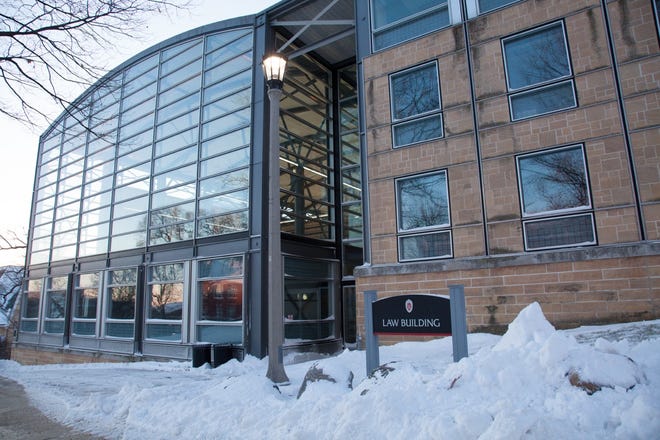

The University of Wisconsin Law School won’t participate in this year’s U.S. News & World Report rankings, a decision made in protest of how the magazine prioritizes metrics that the school says conflict with its underlying values.
The school’s decision, announced Thursday, follows dozens of other law schools in a cross-country revolt against the rankings. The withdrawals began last fall when Yale Law School, long ranked No. 1 in the country, said it would not participate because of how the rankings made it harder for schools to admit and support low-income students.
UW Law School Dean Dan Tokaji called the U.S. News rankings “problematic” for a variety of reasons. The rankings consider a range of metrics, with particular emphasis on median LSAT scores and undergraduate GPAS.
“That causes law schools to spend a lot of their money, including scholarship money, trying to hit those numbers,” Tokaji said in an interview. “LSAT and GPA are really useful and important tools. But incentivizing us to focus single-mindedly on those things is not a good thing for legal education as a whole.”
Also weighted into the rankings are individual deans’ evaluations of peer schools, which Tokaji said has led to advertising dollars targeted toward other schools in order to drive up their own assessments.
U.S. News responded to the exodus of schools electing not to participate by changing some of its methodology earlier this month.
“U.S. News & World Report and its journalists have an important job — to inform the public, to hold powerful institutions accountable and to foster a free and fair exchange of ideas,” said Kim Castro, editor and chief content officer for U.S. News.
But Tokaji said the changes didn’t resolve the flawed methodology and, in one way, actually made it worse.
The new methodology eliminated a metric on student debt. As a public institution, Tokaji said it is UW’s responsibility to to keep student debt manageable. Excluding it altogether doesn’t help students in their search process, which, for many, is heavily weighted by the financial cost.
Tokaji also took issue with an “obscure change” in methodology last year that led the school’s bar admissions metric to fall from No. 6 to No. 45. That’s despite UW Law graduates having a 100% bar admission rate in each of the last two years, he said.
UW Law School pointed out to U.S. News in a late November meeting that the change penalizes schools in states allowing law school graduates to receive their licenses without taking the bar exam. Wisconsin’s “diploma privilege” reduces barriers to entry, especially for people from underrepresented backgrounds, but it disadvantages the school in rankings.
UW Law School tied for No. 43 in the 2022-23 rankings. Tokaji said he’s open to participating in future rankings if “substantial and meaningful” improvements are made to the magazine’s methodoloy.
The dean of Marquette University Law School, ranked No. 105, was not immediately available Thursday for comment.
This story will be updated.
Contact Kelly Meyerhofer at kmeyerhofer@gannett.com. Follow her on Twitter at @KellyMeyerhofer.
